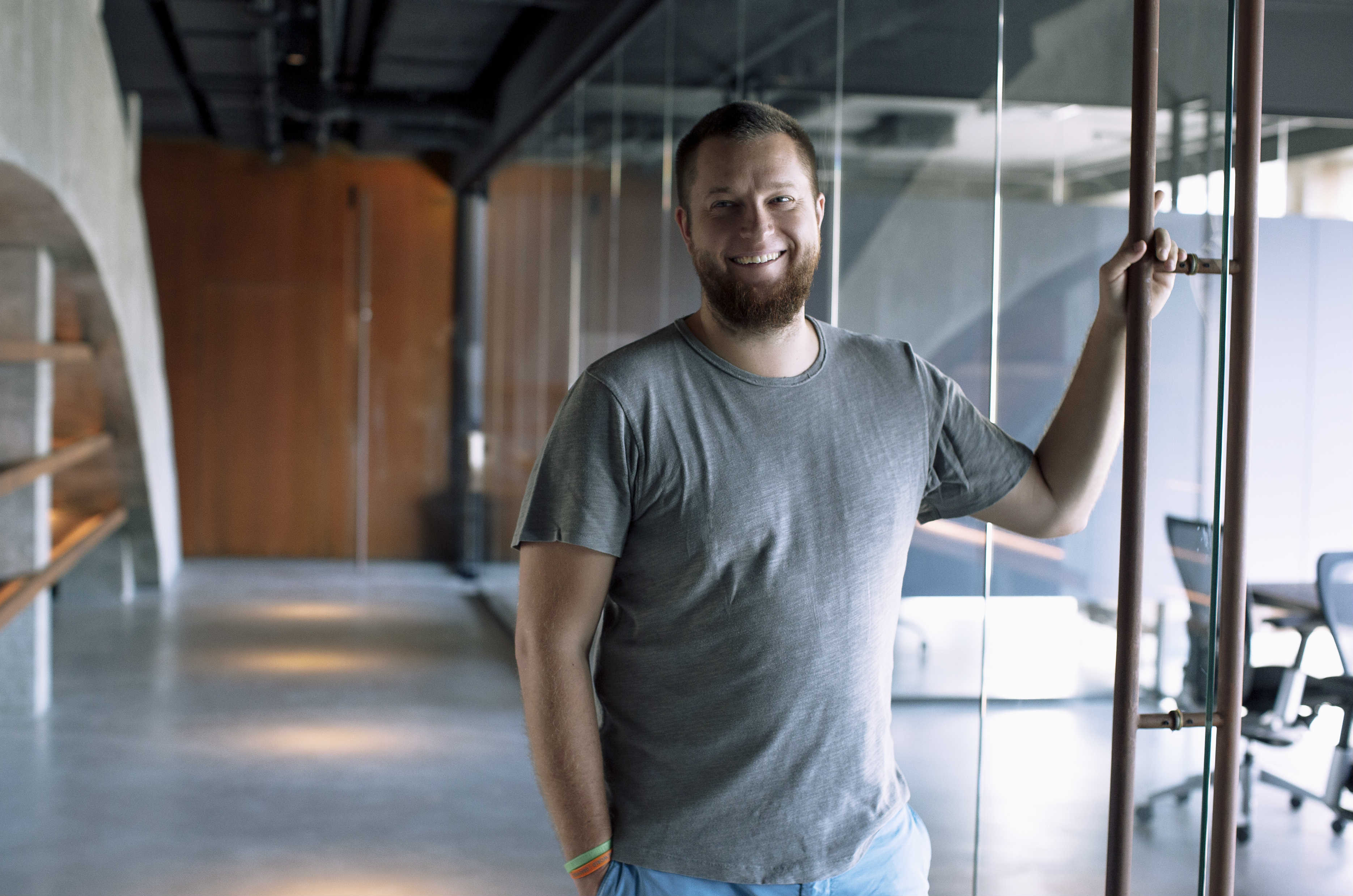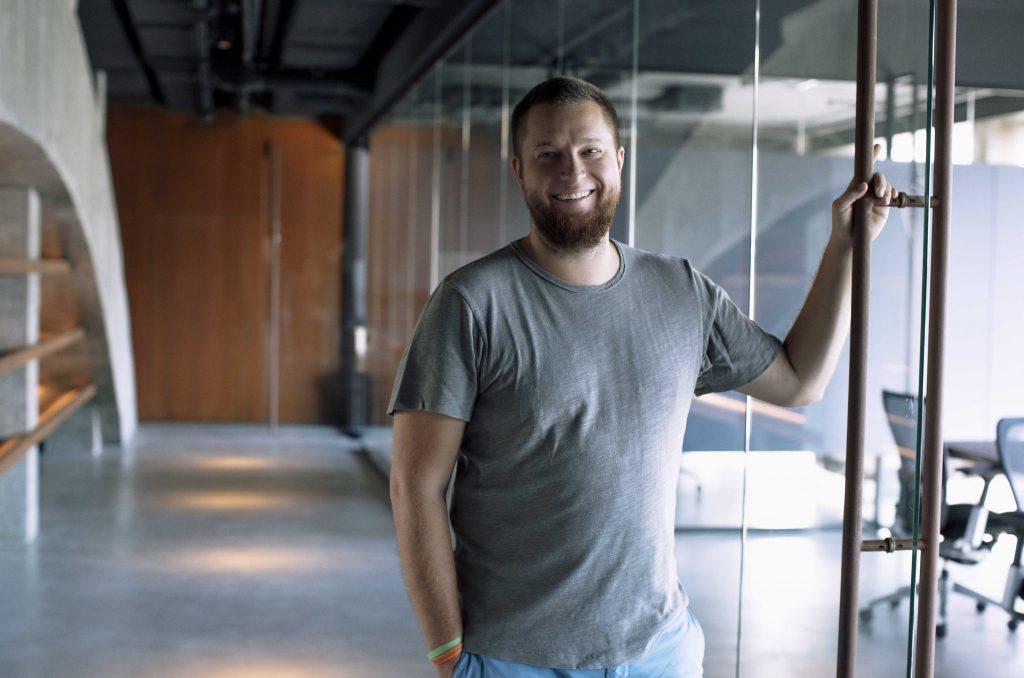 Andrey Stavnitser is a second generation businessman with a clean reputation in Ukraine. He’s also young and ambitious. The bushy-bearded thirty-six-year old turned his father’s TiS company into the largest private port in Ukraine and the largest of all Ukraine’s ports by dry cargo turnover. By investing aggressively in infrastructure, Stavnitser is proving that the country’s security risks, economic turbulence, and challenging business environment are not insurmountable and that Ukraine deserves another look.
Andrey Stavnitser is a second generation businessman with a clean reputation in Ukraine. He’s also young and ambitious. The bushy-bearded thirty-six-year old turned his father’s TiS company into the largest private port in Ukraine and the largest of all Ukraine’s ports by dry cargo turnover. By investing aggressively in infrastructure, Stavnitser is proving that the country’s security risks, economic turbulence, and challenging business environment are not insurmountable and that Ukraine deserves another look.
Stavnitser believes in the importance of foreign investment to increase transparency and limit corruption, and points to some successful partnerships. Stavnitser’s $150 million grain terminal project with Cargill became Ukraine’s largest foreign investment project since 2014. Now Stavnitser is streamlining cargo transportation between the large TiS port in Yuzhny and other large cities including Kyiv and Dnipro with Maersk and the state-owned railway. He also convinced DP World, a leading tugging company based in UAE, to work in Ukrainian ports.
As befits someone from Odesa, he is straightforward and to the point, but also informal and funny.
Staying in Ukraine, despite the ability to live abroad, was an easy decision. “For me the choice was obvious—I am anchored here, and I know how to work in Ukraine,” Stavnitser said. “If you don’t want to take on any risks, you may live somewhere at Lake Geneva, but then [you should] be ready to pay the negative interest rate. If you want to make 20-40 percent profit, you need to take risks.”
Stavnitser isn’t naïve about doing business in Ukraine. He knows that it’s turbulent, but he’s also bullish about the opportunities.
He says that there’s huge demand for money and projects. Plus high lending costs in Ukraine, averaging 7-10 percent on dollar-denominated loans, give investors options. The number of projects and the fact that devaluation made assets relatively cheap in Ukraine suggests that now is the best time to enter the market, Stavnitser said.
“In Europe if you make 7-10 percent profit, you think of yourself as a successful businessman. Here no one takes risks for less than 25-30 percent.” High return goes hand in hand with high risk, and the risks are substantial.
When asked to name the major business risk in Ukraine—I suggested war, corruption, devaluation, and macroeconomic instability—Stavnitser says none are deal breakers. “If you listen to large foreign investors, you will be surprised that they are not really worried about the war.” The greatest worry is Ukraine’s judiciary system. “This is the fuse that switches on too many risks, which cannot be mitigated.”
Still, the war is felt in Odesa. Russia has been blocking supplies to Ukrainian ports on the Sea of Azov, and this aggression has become a major source of concern. Moscow is “testing the limits of what it can do,” and Ukraine needs to be more assertive on the Azov Sea, he said.
Still, Russian aggression does not stop business in Ukraine. In fact, TiS’s deal with Cargill was signed at the height of hostilities in the Donbas. Cargill’s seed-crushing plant in Donetsk had been seized, there were shootings on the streets in Donetsk, and Crimea had already been annexed.
The ongoing war makes dealing with Russia, which had sent a large share of cargo through the Odesa ports before the war, increasingly difficult. For instance, Russia stopped sending its coal through Ukraine’s ports after Ukraine’s state-owned energy company Naftogaz won the Stockholm arbitration against the Russian state-owned company Gazprom.
Ukrainian exporters want to move away from the Russian market and increase exports to the West. But it’s not easy. Ukrainian exporters face a steep learning curve. “Russia was buying rotten apples and generally they did not care,” says Stavnitser. Now Ukrainian businesses should learn “how an apple should be packed and certified for it to appear in an American supermarket.”
Ukrainian farmers, who are one of the major customers for ports, are sending produce for export and showing impressive results with virtually no support from the government. Ukraine exports huge amounts of sunflower oil, grain, honey, and poultry. But to move forward, Ukraine needs a helping hand from Europe. The current trade agreement between Ukraine and the EU gives Ukraine’s exporters an opportunity to increase sales to the EU, but Stavnitser says that some of the quotas are too small to increase exports in a substantial way. He pointed to the quotas for Ukrainian honey, which are fully used up by Ukrainian companies in one day.
On the domestic front, Stavnitser sees important improvements over the last ten years, especially as NGOs and activists started playing a prominent role in public life. Public opinion in terms of toleration toward corruption has been a game changer, he said. It has become much more difficult for officials to extort bribes from businesses. “They [the authorities] try not to target clean companies. If they do, the public opposes it fiercely and they leave. I believe this is the most important thing that occurred in modern Ukraine, that the public is much more active, and it is being taken into account. The biggest change is that before the Maidan people were afraid of the state and now the state is afraid of people.”
Stavnitser dreams big. He wants to develop railway links between the ports on the Black Sea and the Baltics. Another “quantum leap” for Ukraine may come from competing for Asian cargo with the Northern Sea ports.
This Odesa businessman has ambitious projects for Ukraine and isn’t put off by the numerous risks which haunt Ukraine’s business environment. While some see obstacles, Stavnitser sees opportunity.
Oksana Bedratenko is an independent analyst based in Washington, DC; she formerly served as the Senior Local Economist at the US Embassy in Kyiv, Ukraine. She tweets @Bedratenko.
Image: Thirty-six-year old Andrey Stavnitser is the CEO of TiS in Odesa oblast, Ukraine. Courtesy Photo
